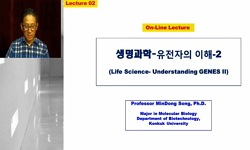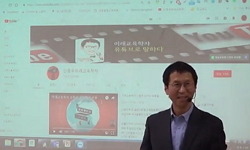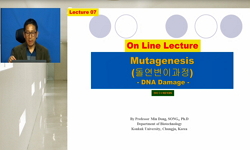Innovative education districts refer to autonomous districts in which each local government, education support office, school, and community participate and cooperate to realize a school-village education community so that children and teenagers can g...
http://chineseinput.net/에서 pinyin(병음)방식으로 중국어를 변환할 수 있습니다.
변환된 중국어를 복사하여 사용하시면 됩니다.
- 中文 을 입력하시려면 zhongwen을 입력하시고 space를누르시면됩니다.
- 北京 을 입력하시려면 beijing을 입력하시고 space를 누르시면 됩니다.
https://www.riss.kr/link?id=T16664340
- 저자
-
발행사항
진주 : 경상국립대학교 교육대학원, 2023
-
학위논문사항
학위논문(석사) -- 경상국립대학교 교육대학원 , 교육학과-생물교육전공 생물교육전공 , 2023. 2
-
발행연도
2023
-
작성언어
한국어
- 주제어
-
발행국(도시)
경상남도
-
기타서명
The Effect of Life Science Class in Middle School by the Village School Teachers in Innovative Education District
-
형태사항
ⅲ, 64 p. : 삽화 ; 30 cm
-
일반주기명
경상국립대학교 논문은 저작권에 의해 보호받습니다.
지도교수: 김용진 -
UCI식별코드
I804:48003-000000032762
- 소장기관
-
0
상세조회 -
0
다운로드
부가정보
다국어 초록 (Multilingual Abstract)
Innovative education districts refer to autonomous districts in which each local government, education support office, school, and community participate and cooperate to realize a school-village education community so that children and teenagers can grow into subjects of life in schools or villages. As a member of the village, which is an educational community, a person in charge of village education to the students or residents of the village is called a village school teacher. The Gyeongsangnam-do Office of Education has been allowing village school teachers to teach at school sites as a happiness education district project since 2017.This study was conducted by village school teachers in the regular classes of the middle school free semester system in the Happiness Education District, and 24 students wanted to participate in the class among 7 first graders of K Middle School in Geoje, Gyeongsangnam-do. The class program has a total of eight themes, including self-defense methods of plants, nutrients and health, genetics and traits, scientific investigation techniques, principles of conservation techniques, bio-currents, eye structure and function, and natural indicator making. The first class was a theory class, and the second class was an inquiry experiment-oriented class, and the second class was conducted for eight weeks, two times a week.Before and after the application of the life science class program, the effect of the life science program was analyzed by conducting a self-awareness survey of middle school students' interest in science (17 questions in 4 areas), science positive experience index (35 questions in 5 areas), and science core competency (25 questions in 5 areas).The results of this study are as follows.First, the degree of interest in science improved from 5.39 points to 7.14 points. In particular, the area of self-concept in science was improved the most, and the area of instrumental motivation in science was improved the least. Therefore, it can be interpreted that classes by village school teachers increased students' interest compared to science classes conducted in existing schools.Second, the science positive experience index improved from 6.10 points to 7.41. Among the five areas, the improvement in scores in the science learning emotional area and science-related self-concept areas was large.Third, as a result of science and core competency tests, the average of all areas was improved from 5.88 points to 7.05. Scientific thinking skills increased by 1.19 from 6.09 to 7.28, scientific inquiry skills increased by 1.10 from 5.80 to 6.90, and scientific problem-solving skills increased by 1.04 from 5.95 to 6.99. Scientific communication skills increased by 1.30 from 5.73 to 7.03, and scientific participation and lifelong learning skills increased by 1.17 from 6.13 to 7.30.As a result of interviewing and questioning with students to explore the factors that had this effect, it was interesting that the village school life science program was an inquiry experiment-oriented class that was not frequently conducted in school, and students participated in the subject participation, and were interested in many topics related to daily life. In addition, as a result of a survey on the satisfaction of the class program, students responded that they were very satisfied or satisfied, and the value by the satisfaction calculation method was high at 100 points.In conclusion, it can be seen that the life science program by the village school teacher increases students' interest in science, has positive experiences in science, and is effective in improving science and core competencies. Therefore, this study can be interpreted that the participation of village school teachers in the innovative education district in school classes contributes to the improvement of science classes in the school field.
국문 초록 (Abstract)
혁신교육지구는 어린이와 청소년들이 학교나 마을에서 삶의 주체로 성장할 수 있도록 각 지자체, 교육지원청, 학교, 지역사회가 함께 참여하고 협력하여 학교-마을 교육공동체를 실현해 나...
혁신교육지구는 어린이와 청소년들이 학교나 마을에서 삶의 주체로 성장할 수 있도록 각 지자체, 교육지원청, 학교, 지역사회가 함께 참여하고 협력하여 학교-마을 교육공동체를 실현해 나가는 자치구를 일컫는다. 교육공동체인 마을의 구성원으로서 마을의 학생들이나 주민들에게 마을 교육을 담당하는 사람을 마을학교 교사라 한다. 경상남도 교육청은 2017년부터 행복교육지구 사업으로 마을학교 교사가 학교 현장에서 수업을 할 수 있도록 하고 있다.
본 연구는 마을학교 교사가 행복교육지구의 중학교 자유학기제 정규 수업에서 생명과학 16차시 수업을 진행한 것으로, 연구 대상은 경상남도 거제시 소재 K중학교 1학년 7개 반 중에서 수업 참가를 희망한 학생 24명이다. 수업 프로그램은 총 8개 주제로 식물의 자기방어 방법, 영양소와 건강, 유전과 형질, 과학수사 기법, 보존 기술의 원리, 생체 전류, 눈의 구조와 기능, 천연 지시약 만들기 등이다. 1차시는 이론 수업, 2차시는 탐구실험 중심의 수업으로 매주 2차시씩 8주간 진행하였다.
생명과학 수업 프로그램 적용 전과 후에 중학생들의 과학에 대한 흥미도(4개 영역 17문항), 과학긍정경험 지표(5개 영역 35문항)와 과학과 핵심역량(5개 영역 25문항) 등에 대한 자기 인식 조사를 하여 생명과학 프로그램의 효과를 분석하였다.
본 연구 결과는 다음과 같다.
첫째, 과학에 대한 흥미도는 5.39점에서 7.14점으로 향상되었다. 특히, 과학에서의 자아개념 영역이 가장 많이 향상되었으며, 과학에서 도구적 동기유발 영역이 가장 적은 향상을 보였다. 따라서 기존의 학교에서 이루어진 과학 수업보다 마을학교 교사에 의한 수업이 학생들의 흥미를 높였다고 해석할 수 있다.
둘째, 과학긍정경험 지표는 6.10점에서 7.41점으로 향상되었다. 5개 영역 중 과학 학습정서 영역과 과학관련 자아개념 영역 점수의 향상 폭이 컸다.
셋째, 과학과핵심역량 검사 결과, 전 영역의 평균은 5.88점에서 7.05점으로 향상되었다. 과학적 사고력은 6.09에서 7.28로 1.19가 높아졌고, 과학적 탐구능력은 5.80에서 6.90으로 1.10 높아졌으며, 과학적 문제해결력은 5.95에서 6.99로 1.04 높아졌다. 과학적 의사소통 능력은 5.73에서 7.03으로 1.30 높아졌으며, 과학적 참여와 평생학습 능력은 6.13에서 7.30으로 1.17이 높아졌다.
이와 같은 효과가 나온 요인을 탐색하고자 학생들과 면담 및 설문한 결과, 마을학교 생명과학 프로그램이 학교에서 자주 하지 않던 탐구실험 중심의 수업이라 흥미가 있었고, 주제 참여에 학생들이 직접 참여했으며, 일상생활과 연계된 주제가 많이 포함되어 관심이 많았던 것으로 나타났다. 또한 수업 프로그램의 만족도를 조사한 결과, 학생들이 매우 만족이나 만족이라 응답하여 만족도 산출 방식에 의한 값은 100점으로 높게 나타났다.
결론은 마을학교 교사에 의한 생명과학 프로그램은 학생들의 과학에 대한 흥미도를 높여주고, 과학에 대한 긍정경험을 갖게 하며, 과학과 핵심역량 향상에 효과가 있다는 것을 알 수 있다. 따라서 본 연구는 혁신교육지구의 마을학교 교사의 학교 수업 참여가 학교 현장의 과학 수업 개선에 기여하는 바가 있다고 해석될 수 있다.
목차 (Table of Contents)
- Ⅰ. 서론 1
- 1. 연구의 필요성 및 목적 1
- 2. 연구 문제 4
- 3. 용어의 정리 5
- 4. 연구의 제한 점 7
- Ⅰ. 서론 1
- 1. 연구의 필요성 및 목적 1
- 2. 연구 문제 4
- 3. 용어의 정리 5
- 4. 연구의 제한 점 7
- Ⅱ. 이론적 배경 및 선행 연구 8
- 1. 이론적 배경 8
- 2. 선행 연구 고찰 10
- Ⅲ. 연구 모형 및 방법 12
- 1. 연구 대상(참여자) 12
- 2. 검사(측정) 도구 13
- 3. 자료 정리 및 분석 18
- Ⅵ. 연구 결과 및 논의 19
- 1. 생명과학 16차시 수강 경험이 과학에 대한 흥미도에 미치는 영향 19
- 2. 생명과학 16차시 수강 경험이 과학긍정경험에 미치는 영향 22
- 3. 생명과학 16차시 수강 경험이 과학과 핵심역량에 미치는 영향 26
- 4. 생명과학 16차시 수강 만족도 30
- 5. 생명과학 프로그램에 대한 인식 31
- Ⅴ. 결론 및 제언 33
- 1. 결론 33
- 2. 제언 34
- Ⅵ. 참고 문헌 35
- Ⅶ. 부록 40












